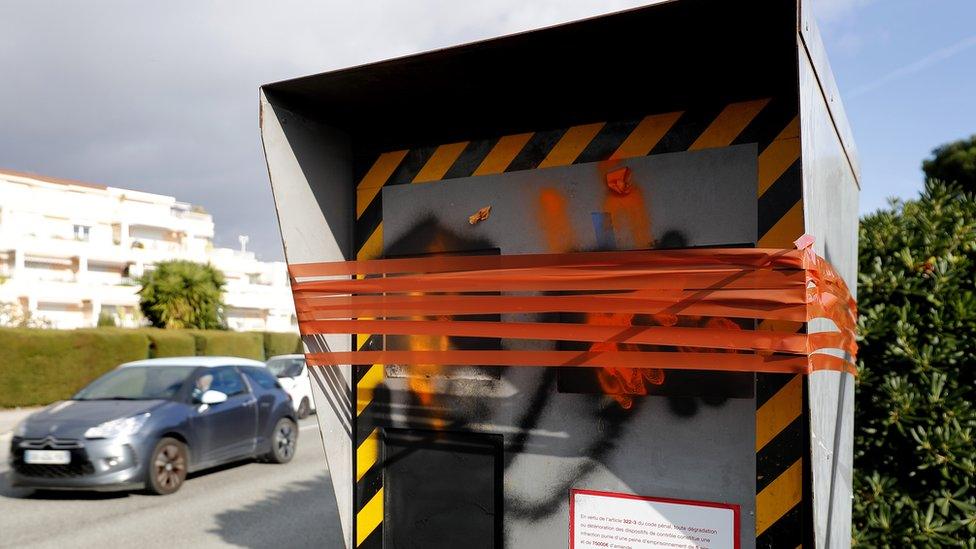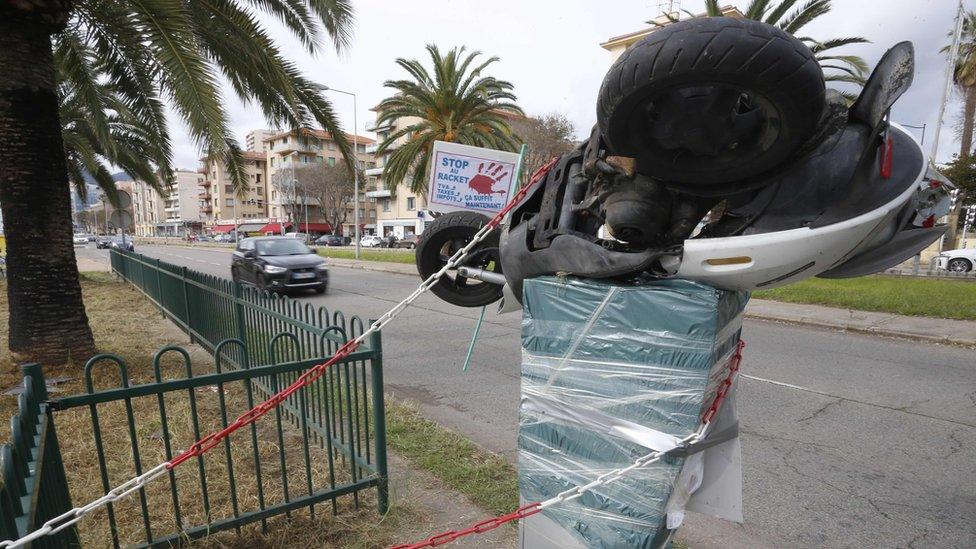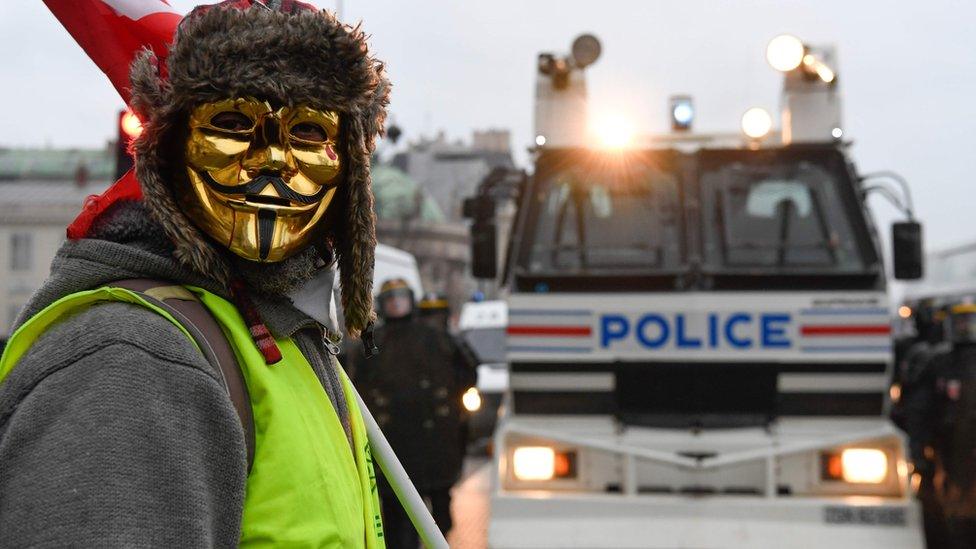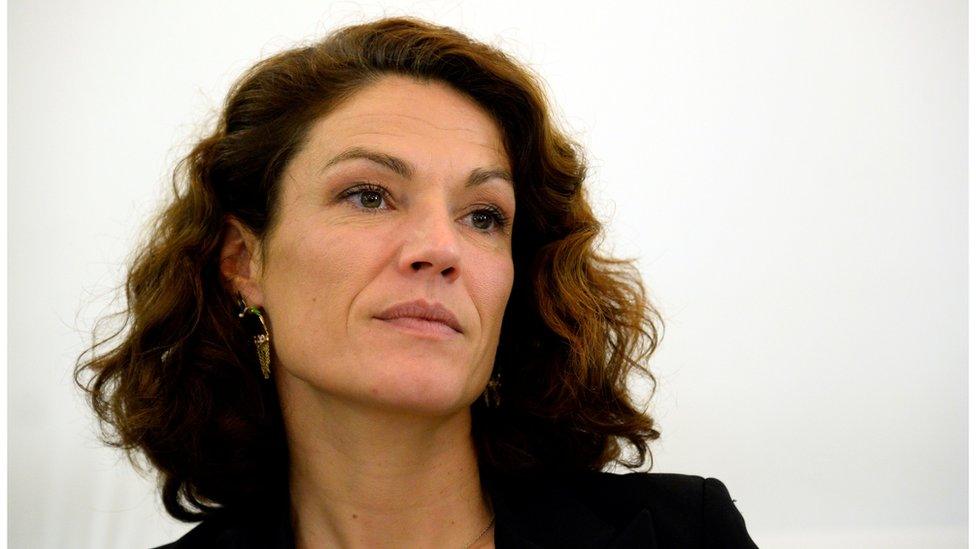Yellow vests knock out 60% of all speed cameras in France
- Published

This speed camera in Nice, photographed in December, is one example of the damage
Members of the "yellow vests" protest movement have vandalised almost 60% of France's entire speed camera network, the interior minister has said.
Christophe Castaner said the wilful damage was a threat to road safety and put lives in danger.
The protest movement began over fuel tax increases, and saw motorists block roads and motorway toll booths.
Some protesters feel speed cameras are solely a revenue-generating measure which takes money from the poor.
The BBC's Hugh Schofield, in Paris, said evidence of the vandalism is visible to anyone driving around France, with radar cameras covered in paint or black tape to stop them working.
But the extent of the damage - now believed to affect more than half of all 3,200 speed cameras in the country's network - was unknown until Mr Castaner's statement on Thursday.
He said the devices had been "neutralised, attacked, or destroyed" by members of the protest movement.
The yellow vests movement, or gilets jaunes in French, is named after the high-visibility vests that every driver in the country must keep in their vehicle.
Speed limits in France were already controversial after the government lowered the limit on many main roads from 90km/h to 80km/h (50mph) early last year.
Protesters angry about the increase in fuel taxes complained of the rising costs of a commute for those priced out of living in urban centres - and turned their ire on other costs such as toll roads and speed cameras.

This plastic-motorbike combination was spotted in Corsica on 2 December
While the number of people attending weekend protests has dropped since the government made some small concessions, the conflict between the popular movement and the government remains a daily topic of debate in France.
Just this week, the prime minister announced a crackdown on unsanctioned protests, while a former boxer filmed punching police officers has divided public opinion, with some claiming he was defending other protesters from police.
And on Tuesday, the person picked to lead the country's planned "great debate" on the issues resigned over her €14,666 monthly salary (£13,200; $16,800).
- Published8 January 2019

- Published8 January 2019

- Published9 January 2019
